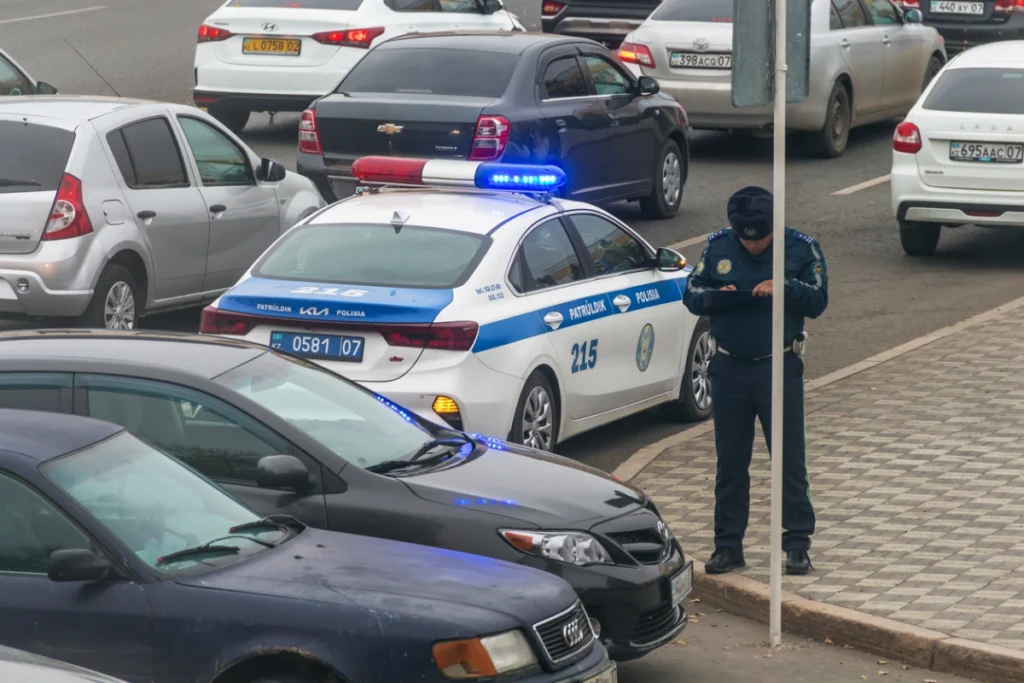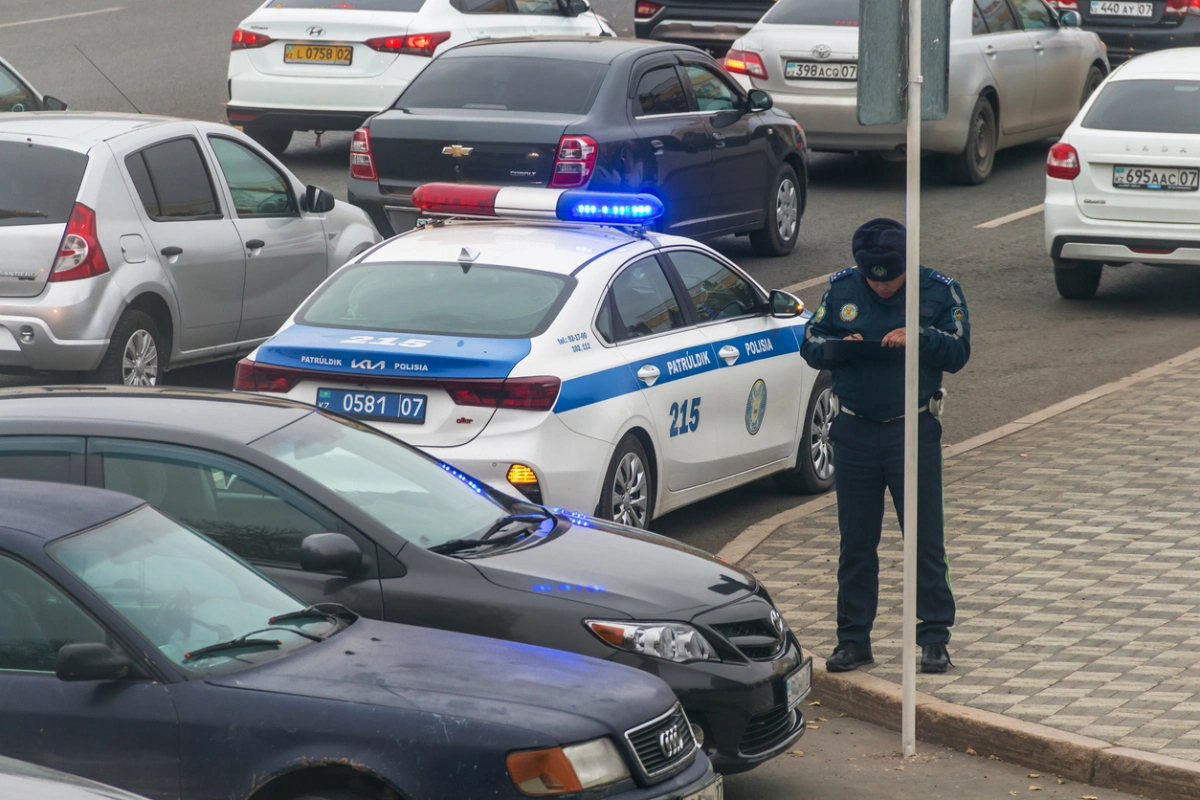
If a police officer in Chicago pulls you over for a traffic offense, you may be issued a ticket. The type of ticket you receive depends on which regulations you violated. You can even potentially be cited for several different violations in a single incident.
Some of those tickets may be for moving violations, while others are for non-moving violations. If you do an internet search for “moving vs. non-moving traffic violations,” you will learn that there are a lot of traffic regulations in Illinois.
Should you be worried about the tickets you received? Will they have a significant financial impact on you? These are important questions to ask, especially before you decide how to respond to them or whether you should request a court appearance.
Experienced criminal defense attorneys can help you determine whether you should fight a traffic ticket or just accept the penalty. A skilled Chicago driving violation lawyer will explain the differences between something like running a red light and a DUI. Your knowledge of the traffic violation system can potentially help you avoid severe penalties.
What Are Moving and Non-Moving Violations?
What is the difference between moving and non-moving violations? The simple explanation is that the former is a violation you receive for illegally moving your vehicle, while the latter is a violation you receive for illegal behavior, regardless of whether your vehicle is in motion or not. This means you can receive a non-moving violation while you are driving.
Moving Violations
What is a moving traffic violation? These are violations that you receive because of risky driving behavior that creates a dangerous situation for others on or near the road. A speeding ticket, for example, is one of the most common types of moving violations.
While moving violations almost exclusively involve driving, you can also get some just by sitting in your vehicle. The most pertinent example is that you can get a DUI while sitting in the driver’s seat of a vehicle while drunk.
Non-Moving Violations
These are traffic offenses that usually don’t involve immediate danger to others. For example, you can get a ticket if your vehicle registration has expired. While an expired registration is not necessarily dangerous, it could potentially reveal dangerous behavior, like not getting your vehicle inspected. Your vehicle can be ticketed for some non-moving violations even when you aren’t present in the vehicle.
Illinois Point System in Detail
Ever wonder how moving violations affect your license? Illinois has a rather unique point system. If you are found guilty of certain moving violation offenses, the Secretary of State (SOS) will assign points to your license. In most states, when you accumulate a specific number of points in a specific timeframe, your license will be suspended. However, Illinois laws work differently.
If you accumulate three or more moving violations within one year, the state may suspend or revoke your license. Whether you are penalized and how long you are penalized depend on two factors: how many points are on your license and how many previous times your license has been suspended.
If your total points are low enough, you will avoid a suspension. But this can only happen if most of your moving violations didn’t result in points on your license. More often, though, your license will be suspended for anywhere from two months to one year. If you have enough points on your license, it may be permanently revoked.
Traffic Violation Points System in Illinois
The Illinois Secretary of State’s point system typically assigns points based on the danger your actions represent to the general public. For example, you receive the least number of points (five) for driving below the speed limit or exceeding it by 10 mph or less. More serious offenses, like failing to yield to the right-of-way to a pedestrian, result in higher penalties.
These points remain on your license for several years, depending on the severity of the traffic law you violated. Some states allow you to attend traffic school to remove points from your driver’s license. Illinois is not one of those states.
Once you have received points on your driver’s license, the only way to remove them is to wait for them to be automatically removed.
Court Supervision as an Option
While traffic court isn’t an option for removing points from your license, traffic court supervision in Illinois can prevent you from getting points in some situations. This can prevent an Illinois traffic ticket points suspension.
Instead of pleading guilty to a traffic violation, you can ask to be placed under court supervision. If the court agrees, typically, you will be required to attend traffic school. The advantage of this is that the moving violation is not added to your driving record, which decreases your chance of a license suspension.
Legal Classifications and Examples in Chicago
What are examples of moving violations and non-moving violations in Chicago? Moving violations include:
- Reckless driving
- Speeding tickets
- Running a red light
- Running a stop sign
- Improper lane changes
- Improper turns
- Drunk driving
- Distracted driving
- Driving without car insurance
Non-moving violations include the following offenses:
- Equipment violations, like a broken taillight
- Parking violations
- Expired vehicle registration
These tickets usually result in fines, but don’t result in you getting points on your driving record.
Moving vs. Non-Moving Traffic Violations
If you have the choice of a parking ticket vs. moving violations, you would want the parking ticket every time. A parking ticket is classified as an infraction. It is a violation of state regulations but not a criminal offense. Conversely, some moving violations can be charged as misdemeanors or felonies.
Do non-moving violations go on your record? Technically, yes. The state maintains a record of every infraction you have ever incurred. However, the state will rarely take non-moving traffic violations into account unless they are excessive or you haven’t fulfilled the penalties for those violations.
How Moving Violations Affect Your Record and Insurance
When moving violations are attached to your criminal record, they increase the number of points on your record. As long as you don’t rack up too many moving violations in a year, you should avoid the most serious repercussions of this.
However, there is a second repercussion that can potentially be more devastating. Every time you get points on your driver’s license, your car insurance company is notified. This can have a significant effect on your car insurance rates.
Most insurance companies will significantly increase your car insurance premiums as you gain points on your license. If you get too many points on your license, your insurance company may decide to cancel your policy. This means you will need to find another company to insure you, and the insurance rates at that company are likely to be excessive.
With enough points on your license, you could be facing insurance rates that are over $1,000 a month just for a single vehicle.
The Often-Overlooked Impact of Non-Moving Violations
Non-moving violations usually don’t result in significant penalties. You will have to pay fines, but if you pay them, you probably won’t face any other difficulties.
If you don’t pay your non-moving violations, however, you could face jail time. A court might issue an arrest warrant for you because of those unpaid fines. This is a harsh penalty that you want to avoid at all costs.
Furthermore, there are some non-moving violations that affect insurance costs. Only a handful of violations will affect your insurance rates, and only some insurance companies care about these types of violations. You should carefully read your policy and discuss policy specifics with your insurance agent to determine whether you need to worry about non-moving violations or not.
Challenging a Traffic Violation in Court
Ever get pulled over and wonder how to fight a speeding ticket in Chicago? The process of fighting a moving violation in court isn’t too difficult. When you are issued your ticket, you will receive information about how to challenge it and the time and place of a court hearing that you can use to do so.
If you decide to fight the ticket, go to the court hearing or arrange an alternate time for the hearing with the appropriate court. To successfully challenge the ticket, you will likely need evidence that you are not guilty of the offense. However, you can also use the hearing as an opportunity to request court supervision.
Whether court supervision is approved often depends on your Chicago DMV traffic violation record. If you haven’t had any violations in the past year, you are much more likely to get supervision approved than if you have several recent violations.
Financial and Practical Implications
The financial implications of driving violations are relatively tame if you don’t accrue too many. Chicago will charge at most a few hundred dollars for most speeding tickets, and many judges will reduce those costs if you have a clean record and can show financial hardship.
However, insurance costs could skyrocket, depending on your insurance policy. Many insurance companies will forgive the first ticket in a specific time period, or tickets that don’t give many points. But some insurers will increase your premiums immediately after any violation. That could potentially cost you thousands more per year.
Practically, if you start to rack up too many violations, you will lose the right to drive for several months. Unless you have little use for your car, this could be devastating. You might even potentially lose your job if you don’t have reliable transportation.
Special Considerations for CDL Holders
Drivers with a commercial driver’s license (CDL) need to be even more careful about violating traffic regulations. The penalty for a moving violation on CDL in Illinois is often harsher than for a normal license. If you have a CDL and are found guilty of a serious traffic violation, your license will be suspended, even if it was your first offense.
Why It Matters in Chicago
Chicago has excellent public transportation. However, even the best public transportation may take a long time to get somewhere that you can drive to in half or even one-third the time. Losing your license due to a moving violation may be a penalty that haunts you for years to come.
The Attorney’s Role and Value
While an internet search for “moving vs. non-moving traffic violations” may help you understand your options, information alone is unlikely to protect you after a moving violation occurs. The best way to protect yourself from a driver’s license suspension or harsher penalties is to contact an experienced criminal defense attorney as soon as possible.
At Kostopoulos Law Group, our attorneys have over 30 years of combined experience protecting the rights of Chicago drivers. We understand the consequences of all types of offenses and will fight to help you keep your license, stay out of jail, and pay as low a fine as possible.
If you are facing any type of violation, contact Kostopoulos Law Group as soon as possible to schedule a free consultation.





